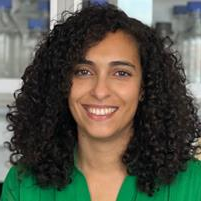The Cellular Impact of Lysosomal Storage Disorders
A special issue of Medical Sciences (ISSN 2076-3271). This special issue belongs to the section "Endocrinology and Metabolic Diseases".
Deadline for manuscript submissions: 26 July 2024 | Viewed by 331
Special Issue Editors
Interests: lysosomal storage disorders; human genetics; molecular genetics; human iPSCs; gene editing; cell models; epigenetics; neurometabolic diseases; neurodegenerative disorders
Special Issues, Collections and Topics in MDPI journals
Interests: lysosomal storage disorders; human genetics; human iPSCS; gene editing; cell models; cell biology; molecular genetics
Interests: mRNA metabolism; genetic biochemistry diagnosis; lysosomal storage disorders; neurodegenerative and neurometabolic diseases; molecular genetics; cloning and cell lines; forensic sciences
Special Issue Information
Dear Colleagues,
Lysosomal storage disorders are a heterogeneous group of rare genetic disorders in which the lysosome plays a pivotal role. The lysosome is a complex organelle, and we want to explore its functions within the cellular landscape. In this Special Issue we want to emphasize the influence of lysosomal dysfunction on various facets of cell biology and processes involved in disease. The interplay of various organelles and cellular pathways, as well as genetic and biochemical mechanisms, still have many aspects to be discovered. Technological innovation and emerging concepts in biology lead to mutable notions about pathologic processes, and the open sharing of new ideas among peers helps in validating the innovative concepts. After two years of pandemic, and subsequent challenges regarding forms of thinking and working, we intend to support and publish promising discoveries.
With this Special Issue we expect to provide a common ground for researchers, health professionals and students to share their findings. The scope of this journal is inclusive; we encourage the submission of works in the aforementioned areas, particularly in the following themes:
- Lysosomal dysfunction and processes involved in disease;
- New personalized approaches to therapies, models and innovative diagnosis;
- Interconnection between non-lysosomal diseases and lysosomal dysfunction.
We look forward to your collaboration.
Dr. Olga Amaral
Dr. Ana Joana Duarte
Dr. M Rosário Rodrigues
Guest Editors
Manuscript Submission Information
Manuscripts should be submitted online at www.mdpi.com by registering and logging in to this website. Once you are registered, click here to go to the submission form. Manuscripts can be submitted until the deadline. All submissions that pass pre-check are peer-reviewed. Accepted papers will be published continuously in the journal (as soon as accepted) and will be listed together on the special issue website. Research articles, review articles as well as short communications are invited. For planned papers, a title and short abstract (about 100 words) can be sent to the Editorial Office for announcement on this website.
Submitted manuscripts should not have been published previously, nor be under consideration for publication elsewhere (except conference proceedings papers). All manuscripts are thoroughly refereed through a single-blind peer-review process. A guide for authors and other relevant information for submission of manuscripts is available on the Instructions for Authors page. Medical Sciences is an international peer-reviewed open access quarterly journal published by MDPI.
Please visit the Instructions for Authors page before submitting a manuscript. The Article Processing Charge (APC) for publication in this open access journal is 1400 CHF (Swiss Francs). Submitted papers should be well formatted and use good English. Authors may use MDPI's English editing service prior to publication or during author revisions.
Keywords
- Lysosomal Storage Disorders
- hereditary disorders of metabolism
- cellular dysfunction
- models of human genetic diseases
- cellular mechanisms of pathology
- lysosome interaction in the cellular environment
- molecular and phenotypic heterogeneity
Planned Papers
The below list represents only planned manuscripts. Some of these manuscripts have not been received by the Editorial Office yet. Papers submitted to MDPI journals are subject to peer-review.
Title: Models of Lysosomal Storage Disorders
Authors: Ana Joana Duarte 1,2,3,4 ,Olga Amaral 1,2,3, *
Affiliation: 1 Departamento de Genética Humana, Unidade de Investigação e Desenvolvimento,
Instituto Nacional de Saúde Ricardo Jorge (INSA), Porto, Portugal
2 Centro de estudos de Ciência Animal (CECA, ICETA), Universidade do Porto,
Portugal
3 Laboratório associado para Ciência Animal e Veterinária (AL4AnimalS), Portugal
4 Instituto de Ciências Biomédicas Abel Salazar (ICBAS), Universidade do Porto,
Portugal
* Corresponding author
Abstract: Lysosomal Storage Disorders (LSDs) are degenerative disorders in which the lysosome plays a pivotal role. Usually of autosomal recessive nature, these multisystemic diseases present great phenotypic and genetic variability. Although these disorders are individually rare, as a whole they are responsible for high morbidity and mortality. Patients within the same family may present distinct phenotypes and despite the existence of effective therapies, for some of the LSDs, different individuals do not always respond in the same way, both of these issues demonstrate the disturbance of the fine-tuned lysosomal functions. Models of disease have been established and used in research for many years. Laboratory animals are often used to carry out functional test and shed light on the pathogenic mechanisms, but other types of systems have also become popular, such as yeast and cell models. Moreover, disease models based or human induced Pluripotent Stem Cells (hiPSCs) have great potential for the disclosure of mechanisms, and most importantly, to test the patient’s response to particular therapies.
In this paper we will explore the role of hiPSCs based models. Patients with genotype-specific differences in the relevant genes may have different biological lysosomal functions. Potentially, hiPSCs are a valuable research tool to study disease and to accelerate therapeutic methodologies.






